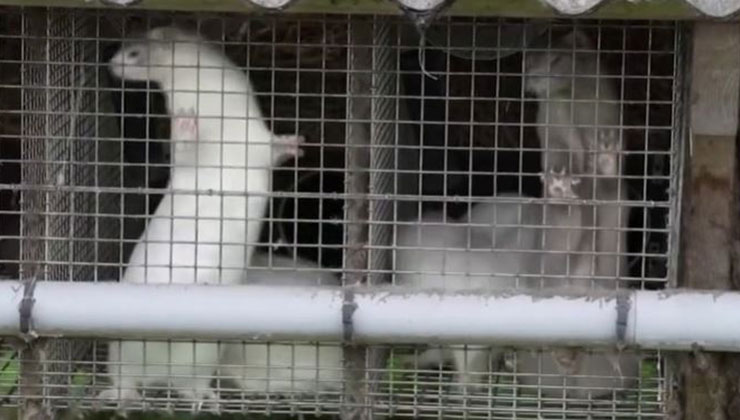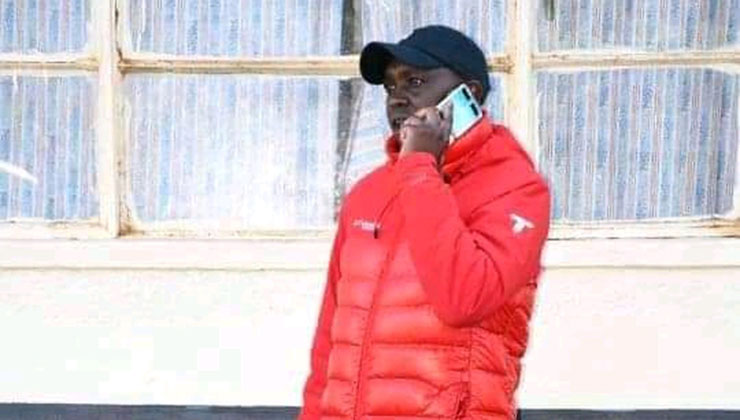What’s the science behind mink and coronavirus as Denmark kills 17 million of them?

Mutations in coronavirus have triggered culls of all 17 million farmed mink in Denmark.
Part of the country has been put under lockdown after Danish authorities found genetic changes they say might undermine the effectiveness of future Covid-19 vaccines.
More than 200 people have been infected with mink-related coronavirus.
And the UK has imposed an immediate ban on all visitors from Denmark amid concerns about the new strain.
Danish scientists are particularly concerned about one mink-related strain of the virus, found in 12 people, which they say is less sensitive to protective antibodies, raising concerns about vaccine development.
The World Health Organization has said the reports are concerning, but further studies are needed to understand the implications for treatments and vaccines.
“We need to wait and see what the implications are but I don’t think we should come to any conclusions about whether this particular mutation is going to impact vaccine efficacy,” said chief scientist, Soumya Swaminathan.
The coronavirus, like all viruses, mutates over time and there is no evidence that any of the mutations found in Denmark pose an increased danger to people.
Dr Marisa Peyre, an epidemiologist from the French research institute Cirad, said the development was “worrying”, but we don’t yet know the full picture.
“Every time the virus spreads between animals it changes, and if it changes too much from the one that is circulating within humans at the moment, that might mean that any vaccine or treatment that will be produced soon might not work as well as it should do,” she explained.
This is a very unusual chain of events: a virus that originally came from a wild animal, probably a bat, jumped into humans, possibly via an unknown animal host, sparking a pandemic.
Mink kept in large numbers on mink farms have caught the virus from infected workers. And, in a small number of cases, the virus has “spilled back” from mink to humans, picking up genetic changes on the way.
Mutations in some mink-related strains are reported to involve the spike protein of the virus, which is targeted by some, but not all, vaccines being developed.
“If the mutation is on a specific protein that is being currently targeted by the vaccine developers to trigger an immune response in humans then it means that if this new virus strain comes out of the mink back into the humans, even with vaccination, the humans will start spreading it and the vaccine will not protect,” Dr Peyre told BBC News.
More than 50 million mink a year are bred for their fur, mainly in China, Denmark, the Netherlands and Poland. Outbreaks have been reported on fur farms in the Netherlands, Denmark, Spain, Sweden, Italy and the US, and millions of animals have had to be culled.
Mink, like their close relatives, ferrets, are known to be susceptible to coronavirus, and like humans, they can show a range of symptoms, from no signs of illness at all to severe problems, such as pneumonia.
Scientists suspect the virus spreads in mink farms through infectious droplets, on feed or bedding, or in dust containing droppings.
Mink have caught the virus from humans, but genetic detective work has shown that in a small number of cases the virus seems to have passed the other way, with the virus spreading from mink back to humans.
Mink have become “reservoirs for the virus” and surveillance is required in other wild and domestic animals that may be susceptible, said Prof Joanne Santini of University College London.
“Mink is the extreme but it could be happening out there and we just don’t know about it and that’s something we need to be checking,” she told BBC News.
“What we do know is that the mink are picking up the virus from people; they can be infected and they are spreading it between themselves and it’s come back to humans.”
Scientists in Denmark are carrying out genetic studies on mink-related strains, which they plan to share with other researchers, to allow further scrutiny.
“We need to find out where these mutations are and we need to see what effect that has on transmission of the virus and how infectious it is, because if it is changing and being more infectious or having a broader host range, then that’s really quite scary but it might not be, because we don’t know,” said Prof Santini.
Some scientists have called for new restrictions on mink production, saying mink farming “impedes our response and recovery from the pandemic”.
In a recent letter to the journal, Science, three scientists, from Denmark, China and Malaysia, wrote: “It is urgent to monitor, restrict, and – where possible – ban mink production.”
The WHO has called on all countries to step up surveillance and tighten biosecurity measures around mink farms.












